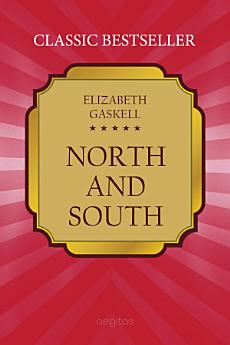North and South
ফেব ২০১৭ · Aegitas
৫.০star
২টি রিভিউreport
ই-বুক
465
পৃষ্ঠা
family_home
উপযুক্ত
info
reportরেটিং ও রিভিউ যাচাই করা হয়নি আরও জানুন
এই ই-বুকের বিষয়ে
North and South is a social novel by English writer Elizabeth Gaskell. Along with Wives and Daughters (1865) and Cranford (1853), it is one of her best known novels and has been adapted for television twice, in 1975 and 2004. The latter version renewed interest in the novel and gained it a wider readership. While Gaskell's first novel Mary Barton (1848) focused on relations between employers and workers in Manchester from the perspective of the working poor, North and South uses a protagonist from southern England to present and comment on the perspectives of both mill owners and mill workers in an industrializing city. North and South is set in the fictional industrial town of Milton in the North of England. Forced to leave her home in the tranquil rural south, Margaret Hale settles with her parents in Milton where she witnesses the brutal world wrought by the industrial revolution and employers and workers clashing in the first organised strikes. Sympathetic to the poor, whose courage and tenacity she admires and among whom she makes friends, she clashes with John Thornton, a cotton mill manufacturer who belongs to the nouveaux riches class and whose contemptuous attitude to workers Margaret rejects. The novel traces both her growing understanding of the complexity of labor relations and her impact on well-meaning mill owners, and her conflicted relationship with John Thornton.
রেটিং ও পর্যালোচনাগুলি
৫.০
২টি রিভিউ
ই-বুকে রেটিং দিন
আপনার মতামত জানান।
পঠন তথ্য
স্মার্টফোন এবং ট্যাবলেট
Android এবং iPad/iPhone এর জন্য Google Play বই অ্যাপ ইনস্টল করুন। এটি আপনার অ্যাকাউন্টের সাথে অটোমেটিক সিঙ্ক হয় ও আপনি অনলাইন বা অফলাইন যাই থাকুন না কেন আপনাকে পড়তে দেয়।
ল্যাপটপ ও কম্পিউটার
Google Play থেকে কেনা অডিওবুক আপনি কম্পিউটারের ওয়েব ব্রাউজারে শুনতে পারেন।
eReader এবং অন্যান্য ডিভাইস
Kobo eReaders-এর মতো e-ink ডিভাইসে পড়তে, আপনাকে একটি ফাইল ডাউনলোড ও আপনার ডিভাইসে ট্রান্সফার করতে হবে। ব্যবহারকারীর উদ্দেশ্যে তৈরি সহায়তা কেন্দ্রতে দেওয়া নির্দেশাবলী অনুসরণ করে যেসব eReader-এ ফাইল পড়া যাবে সেখানে ট্রান্সফার করুন।




